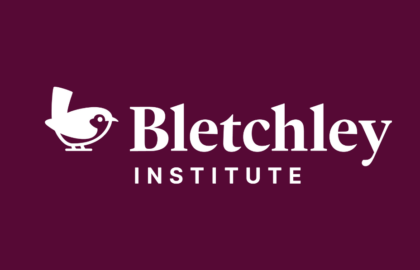5 Unexpected Benefits of Working with a Career Coach

We asked Flatiron School grads what they valued most about their experiences working with our career coaches. Here are 5 unexpected benefits that Career Coaches can offer.
This article is part of the Coaching Collective series, featuring tips and expertise from Flatiron School Career Coaches. Every Flatiron School graduate is eligible to receive up to 180 days of 1:1 career coaching with one of our professional coaches. This series is a glimpse of the expertise you can access during career coaching at Flatiron School.
Having talent is just the beginning when it comes to landing your first job in tech. Getting hired, on the other hand, is a process. If you are changing careers or looking to land your first job out of school or bootcamp, you may benefit from having someone on your team who can help build your job-seeking skills. A career coach might be a great choice.
We asked Flatiron School grads what they valued most about their experiences working with our career coaches. Here are 5 unexpected benefits that Career Coaches can offer:
1. A personalized strategy
There are many questions that come up during a job search.
I’m submitting applications, but I’m not getting any interviews. What am I doing wrong? All of the jobs are requesting many years of experience, should I apply anyway? What if I’m returning to the workforce after a long break? What are tips for networking as an introvert? I’m a military spouse, can I find a job with location flexibility?
A Career Coach can help you identify answers to many of these questions and build a strategy specific to your needs, interests, and background.
When building your job search strategy, it’s always great to consider the following:
Where do you see yourself in the future? What do you value most? What skills and talents have you collected from your previous experiences?
Based on your answers to these questions, a Career Coach can coach guide you through:
- Aligning your brand and digital presentation to match your desired role
- Building an eye catching resume
- Preparing for interviews
- Identifying roles to best fit your career vision and experience
“[My Career Coach] was extremely helpful in helping me understand how to navigate making the right connections.” – Flatiron School grad

2. Translating your skills to grab attention
“How would you write ‘I changed a lightbulb’ on a resume?”
You may have seen the popular meme circulating that pokes fun at the language used in resumes and job descriptions. It’s true, hiring has its own language. The push to make hiring practices and processes more accessible is ongoing. In the meantime, it is important to know how to translate your skills in a way that will grab a recruiter’s attention and get you an interview.
A career coach can help you learn to de-code job descriptions, identify your accomplishments, and translate your relevant skills into resume popping, and interest grabbing soundbites for your interviews and networking conversations.
“I had submitted probably 35 resumes when I started working with [My Coach] with zero luck. [My Coach] taught me how to make meaningful connections and use my time efficiently and I immediately started getting interviews.” – Flatiron School grad
Here is a tip for your toolbelt — pay attention to the language in the job description. What important words are repeated most? What does the description tell you about what the employer/company values?
Once you’ve found those important details be sure to mirror them in your resume and interviews.
3. Motivation
Searching for a new job requires putting yourself in new situations, reaching out to build your network, bouncing back from rejection, and deciding on whether to accept an offer. None of these are easy to do. A Career Coach can provide accountability, and the encouragement you need to push through.
“[My Coach ] explained to me how to stand out when looking for jobs and build my social/media presence. [She] pushed me past my comfort zone and I’m glad she did.” – Flatiron School grad
The accountability, support, and fresh perspective offered by a career coach can be a great motivator during your job search.
4. Perspective
Part of the role of a career coach is to be versed on the job market and hiring best practices. Whether you are looking to move into a brand new career, or returning to the job market after years in a previous role, your coach can give you insights on what to expect and what to ask for.
A coach can offer perspective on your job search approach that can change things tremendously.
“[My Coach] was great at drafting answers for cultural interviews. She helped me build up a positive and healthy persona from my past experience, which helped me have a better reflection on myself. She also provided a lot of valuable information about the industry’s standard practice that helped me gain better benefits from the company.” – Flatiron School grad
5. Getting to say goodbye to your coach
One of the best benefits of having a career coach is having the opportunity to say goodbye — because you got hired! The job of a career coach is helping you reach your goal, all while building skills that will last long beyond your coaching relationships. Your job search is all your own. A great career coach will not do the work for you, but they can help you build confidence and independence in your ability to get a job.
“My coach didn’t give me the answers, she pushed me to find the answers for myself. When it came to resume she was honest about where it is/was lacking and how to make it better. She was encouraging and positive.” – Flatiron School grad
At Flatiron School we make no little plans and believe in working together. Flatiron School offers a robust career services program that offers up to 180 days of career support to our graduates.
About Valerie Jiggetts
Valerie believes in the power of people. As a career strategist and people experience professional she utilizes inclusive frameworks and human-centered approaches to support individuals to build habits, communities and environments needed to thrive and achieve their goals.
Disclaimer: The information in this blog is current as of March 18, 2022. Current policies, offerings, procedures, and programs may differ.



